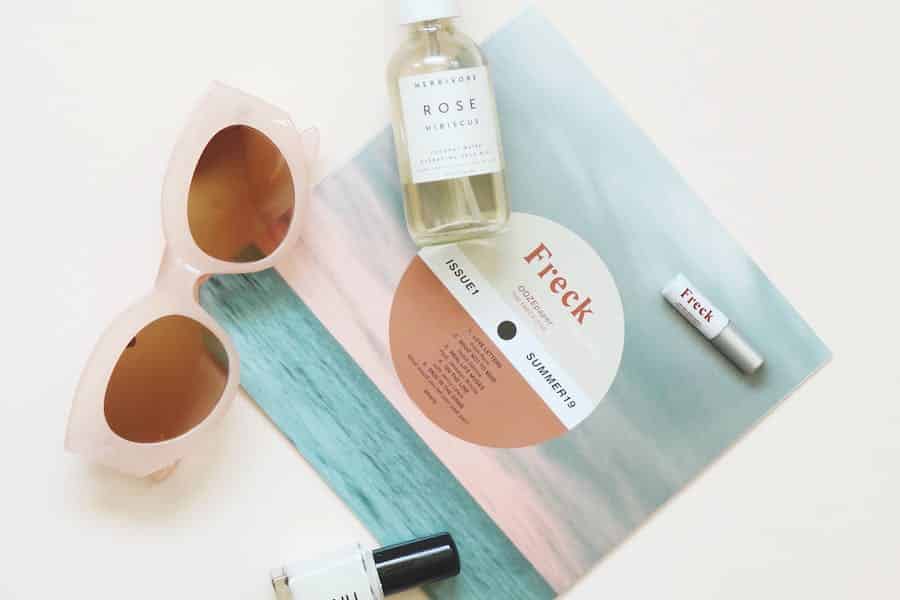
When the sun smiles down upon us, we often reach for our sunscreen to shield our skin, but how often do we consider the tender care our eyes deserve? Sunglasses are not merely a fashion statement; they’re a crucial element of a comprehensive skincare routine. Like our skin, our eyes are susceptible to the sun’s harmful ultraviolet (UV) rays, and protection is essential year-round, not just during the balmy days of summer.
The Underrated Shield
We slather layers of SPF to protect our skin from premature aging, but the delicate skin around our eyes is frequently overlooked. This area is more prone to show signs of aging due to its thinness and the continuous movement from facial expressions. Sunglasses act as a physical barrier, preventing UV rays from accelerating the appearance of crow’s feet and fine lines. But, it’s not only about the skin; the eyes themselves are at risk. Prolonged UV exposure can lead to conditions like photokeratitis (sunburn of the eye), cataracts, and macular degeneration.
Seasonal Strategies
Let’s break down the strategies to protect your eyes and the surrounding skin throughout the year.
Spring: The Awakening
As nature awakens, so should your eye protection game. The sun’s position is higher in the sky, and the days grow longer, increasing your exposure to UV rays. Spring is notorious for its bright, reflective surfaces due to rain and melting snow. High-quality sunglasses with 100% UVA and UVB protection can shield your eyes from glare and harmful rays, preventing squinting, which contributes to those unwanted wrinkles. Pair your sunglasses with a broad-spectrum SPF and a hat for complete protection.
Summer: The Zenith of Sunlight
The summer months bring about an increase in outdoor activities. Whether it’s a beach day, a long hike, or just a stroll in the park, never leave home without your sunglasses. During these months, the UV index can reach extreme levels. Opt for wraparound sunglasses or those with a larger frame to protect as much of the eye area as possible. Remember, the reflection off the water can be just as harmful as direct sunlight, so even if you’re lounging under an umbrella, your sunglasses are a must.
Autumn: The Subtle Threat
Don’t be fooled by the cooler temperatures and the softer sunlight; the UV threat still lingers. The sun sits lower in the sky, and its rays hit us directly in the eye, especially when driving. Polarized sunglasses can reduce this glare and help maintain clearer vision, safeguarding against accidents. The skin’s repair mechanisms also kick into high gear in the autumn months. Support this recovery by maintaining your eye protection routine, giving your skin and eyes a chance to heal from any inadvertent summer damage.
Winter: The Hidden Hazard
Winter sports enthusiasts are no strangers to the blinding glare of the sun against the snow, which can lead to snow blindness. This season calls for sunglasses with a strong UV rating and, if possible, side shields to block the sun’s rays reflecting off the snow. Don’t be tempted to forego your SPF during these chilly months; the winter sun, especially at higher altitudes, can be surprisingly intense. And while the days are shorter, the UV exposure, particularly in the early afternoon, can still be significant.
Choosing The Right Sunglasses
Not all sunglasses are created equal. Here’s what to look for when selecting your perfect pair:
UV Protection
Look for sunglasses that offer 100% UVA and UVB protection. This ensures that the delicate skin around your eyes is shielded from the rays that cause skin cancer and premature aging.
Frame Size
Larger frames cover more of the eye area and provide better protection against the sun’s rays, as well as environmental irritants like wind and dust.
Lens Quality
Polarized lenses can reduce glare, which is particularly beneficial around water and snow. However, polarization does not equate to UV protection, so make sure they offer both.
Material
The material of the lens can affect clarity, weight, and durability. Polycarbonate lenses are impact-resistant and suitable for active lifestyles, while glass offers superior optical clarity.
Fit
Ensure that your sunglasses fit well. They shouldn’t pinch behind the ears or slide down the nose, as constant adjusting can introduce more bacteria to the skin, potentially causing breakouts.
Integrating Sunglasses Into Your Skincare Routine
Here are practical ways to make sunglasses a part of your daily skin and eye care:
Make Them Handy
Keep multiple pairs of sunglasses in convenient locations — your car, your bag, and at home by the door. This makes it easier to grab a pair whenever you head outside.
Pair with SPF
Apply broad-spectrum sunscreen every morning, not forgetting the eye area and then don sunglasses as you step out. Reapply sunscreen every two hours or immediately after swimming or sweating.
Cleanliness Counts
Regularly clean your sunglasses to prevent the buildup of oils and bacteria, which can lead to skin irritation and breakouts.
Eye Creams
Use eye creams with SPF during the day and nourishing formulas at night to aid in the repair and fortification of the delicate skin around the eyes.
Year-Round Protection
Just like you don’t abandon your skincare routine based on the season, your eyes deserve the same commitment to protection all year long. As we brace for each season’s unique challenges, integrating sunglasses into our daily lives becomes a non-negotiable aspect of our overall health and wellness. So, slip on those shades, embrace the warmth, and step into the light with confidence, knowing you’re fully protected.
Final Tips for Seamless Sun Protection
In addition to the points mentioned, it’s wise to stay informed about the latest innovations in eyewear. For instance, Ray-Ban glasses have been at the forefront, offering a variety of lenses and styles that provide 100% UV protection while ensuring you stay on trend.
Remember, investing in a pair of quality sunglasses like Ray-Ban can make a significant difference in your eye health and contribute to your overall skincare goals. When choosing sunglasses, consider those with lenses with anti-reflective coatings to reduce glare and blue-light blocking technology to protect against digital eye strain.
Also, keep an eye on the weather report; UV levels can be high even on cloudy days, so don’t be deceived by a lack of sunshine. Lastly, never underestimate the power of regular eye examinations; they’re crucial for maintaining optimal eye health and ensuring your sunglasses still provide adequate protection. By following these final tips, you can ensure that your eyes (and the skin around them) remain safeguarded against the elements, no matter the season.








